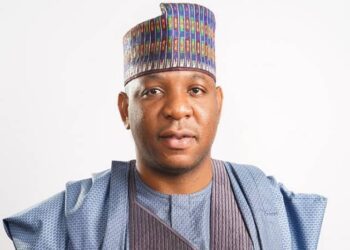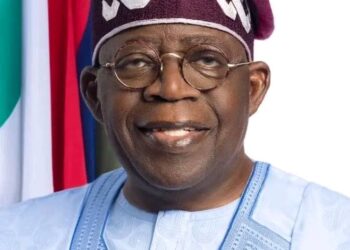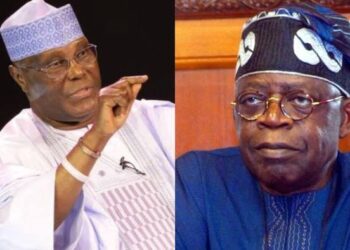We need technical support – FG
‘Inter-ministerial c’ttee on NNPC reform soon’
By Abdullahi M. Gulloma
Abuja,
From the International Monetary Fund came some words of advice t o President Muhammadu Buhari that his administration should not be rigid on his policies, to the extent that the common man would be hard hit.
The Fund which admitted that Nigeria is currently facing serious economic challenges, also declared that what the country desires at this time is fiscal discipline and not any loan from the body.
IMF Managing Director, Ms Christine Lagarde gave the advice yesterday while speaking with the state House Correspondents shortly after the team’s meeting with President Buhari in Abuja.
She noted that Nigeria does not need its loans to survive despite the current economic situation in the country occasioned by dwindling price of crude oil at the international market.
Lagarde also said the IMF has no intention of negotiating any new loan programme with Nigeria.
“First, let me make it clear that I’m not here nor is my team in this country to negotiate a loan with conditionalities. We are not into programme negotiations and frankly at this point in time, given the determination, resilience displayed by the President and his team, I don’t see why an IMF programme will be needed.
“Of course, discipline is going to be needed, of course, implementation is going to be key for the objectives and the ambitions to serve the country well, in order for it to be actually sustainable,” she said.
The IMF boss said the federal government should not be rigid in its policy so as not to further impoverish the common man in the country.
She said: “We believe that with very clear primary ambition to support the poor people of Nigeria, there could be added flexibility in the monetary policy, particularly if as we think, the price of oil is likely to be possibly low for longer, because clearly the authorities should not deplete the reserves of the country, simply because of rules that will be exceedingly rigid. I’m not suggesting that rigidity be totally removed but some degree of flexibility will be enough.”
Lagarde said the IMF’s team of financial experts would be in the country to meet with the Finance Minister on the 2016 budget proposal with a view to ascertaining its implementation.
The IMF chief also spoke on the specific discussions she had with the President, saying they had excellent discussions on “the challenges ahead stemming from oil price reduction, the necessity to apply fiscal discipline and the need to also respond to the population needs while
addressing the medium term specificities of improving the competitiveness of Nigeria and yet also focusing on the short term fiscal situation which requires that revenue sources be identified in order to compensate the shortfall resulting from oil price decline.”
Reacting to comments that judging from the country’s past experience, IMF programmes have never been pro-poor, Lagarde said: “Certainly, the last four and a half years, since I have been Managing Director of this institution, this is not the recipe we adopted and this is certainly not the feedback I have received from the countries that we have worked with.
“I just want to point out that we are majorly involved in three kinds of activities. The first one which is the most traditional one is under which we give policy advice to our members, we have currently 188 countries that are under this institution and it is our duty and accountability to them to review their economy every year to give them report about their economy. We don’t push them, we don’t do things necessarily to please them. We say things as we see them.
“The second activity which is the fastest growing one in the institution is technical assistance and capacity building, and plenty of that is available to all the countries of the world. It gives us pride to see that about 150 countries have had the benefit of technical assistance and capacity building.
“The third activity is the lending that we provide because nobody else is ready to provide lending for the country. When the balance is in a very bad situation and when there are no finances available, at that point in time in order to pull the country out of the very difficult situation it is in, we come in and we lend. But we do that because it is the entire international community’s monies.
“It is not my money, it is the international community’s money and we do so with the right guarantees stepping into international community bonds, which is that the economy is going to be improved, that fiscal discipline is going to be brought in, that corruption is going to be punished. We don’t do as much now as we did four years ago because the situation has improved. As I said earlier on I am not here to negotiate a programme at all.”
She further said the IMF would be willing to assist the federal government in plugging revenue leakages, tracing stolen funds and restructuring its tax system.
In his response, President Buhari said the present administration would look inwards, enforce regulations to stop financial leakages and adopt global best practices in generating more revenue to mitigate the effect of dwindling oil prices on the economy.
According to him, the greater discipline, probity and accountability would be enforced in all revenue generating agencies of the federal government.
“We have just come out of budget discussions after many weeks of taking into consideration the many needs of the country, and the downturn of the economy with falling oil prices and the negative economic forecasts.
“We are working very hard and with the budget as our way forward, we will do our best to ensure that our country survives the current economic downturn. We have also told all heads of Ministries, Departments and Agencies of government that on our watch, they will fully account for all funds that get into their coffers,” he said.
He said the federal government was reviewing its operational costs and had directed all the MDAs to cut down on their overhead costs.
The President said the federal government would welcome the technical support and expertise of the IMF for its plans to diversify the country’s economy and further unleash its growth potentials.
In a related development, President Buhari said yesterday in Abuja that an inter-ministerial committee would be established to speed up the re-organization and reformation of the Nigerian National Petroleum Corporation (NNPC).
Speaking at a meeting with the Chief Executive Officer of the International Finance Corporation (IFC), Jin-Yong Cai, at the Presidential Villa, the President said the reformation of the NNPC became inevitable in view of the corruption and abuse of its present structure in the recent past.
The President also cited Nigeria’s current need to maximize income from every source of revenue as a further imperative for reforming the NNPC.
He said the present administration was doing everything possible to boost national revenue so that it can effectively implement its programme of change and significantly improve the living conditions of Nigerians.
In his remarks, Mr. Jin-Yong Cai, who is also the Vice President of the IFC, told the President that with proper reformation and re-organisation, NNPC could become Africa’s largest company.
“You have brought monumental changes since you got to power. You have brought in strong leadership and Nigeria has the opportunity under you to become highly reputable.
“In NNPC, you can create an entity that is dominant in Africa, and this is the right time to do it, with the momentum you have created,” he said.



